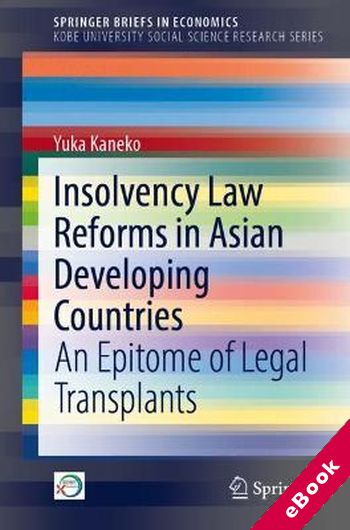We are now closed for the Christmas and New Year period, returning on Monday 5th January 2026. Orders placed during this time will be processed upon our return on 5th January.

The device(s) you use to access the eBook content must be authorized with an Adobe ID before you download the product otherwise it will fail to register correctly.
For further information see https://www.wildy.com/ebook-formats
Once the order is confirmed an automated e-mail will be sent to you to allow you to download the eBook.
All eBooks are supplied firm sale and cannot be returned. If you believe there is a fault with your eBook then contact us on ebooks@wildy.com and we will help in resolving the issue. This does not affect your statutory rights.
This book examines the outcomes of the economic law reforms in Asian developing countries, guided by the leading international development financiers such as the World Bank and the Asian Development Bank. Included is a particular focus on the recent "insolvency law" reforms in the Asian emerging economies, such as Vietnam, Laos, and Myanmar. Such legal reforms are the results of the "transplant" of the model law provided by these donor agencies, a law that was created in the post-Asian Currency Crisis in the 1990s. This book therefore examines the outcomes of three decades of donor-guided legal reforms. Appropriately, it applies not only the static approach to the legal texts but also an empirical methodology through interview surveys of the corporate and financial sectors.
Following the introduction in Chapter I, Chapter II reviews the basic theories and presents the methodological framework. Chapter III then analyzes the contents of insolvency law reforms in the major target countries, namely, Vietnam, Laos, and Myanmar. Chapter IV provides a closer investigation into the design choices of Myanmar's 2020 Insolvency Law as a typical example of the law reform involving the inter-donor conflict of law models between the Asian Development Bank and Japan's official development assistance project. Lastly, Chapter V applies an empirical approach to the functioning of insolvency law, through international collaboration for interview surveys with small and medium-sized enterprises (SMEs) and their financiers.